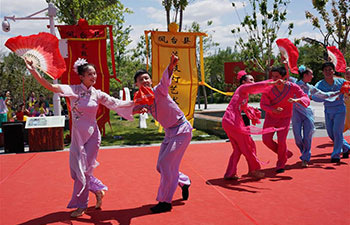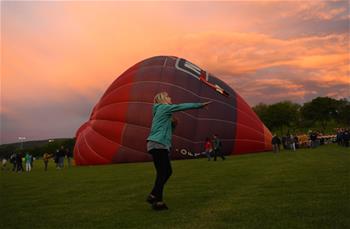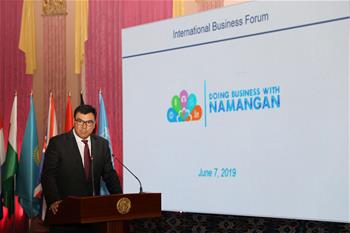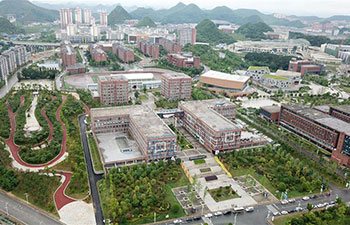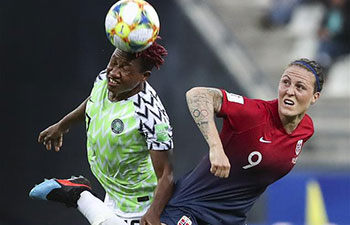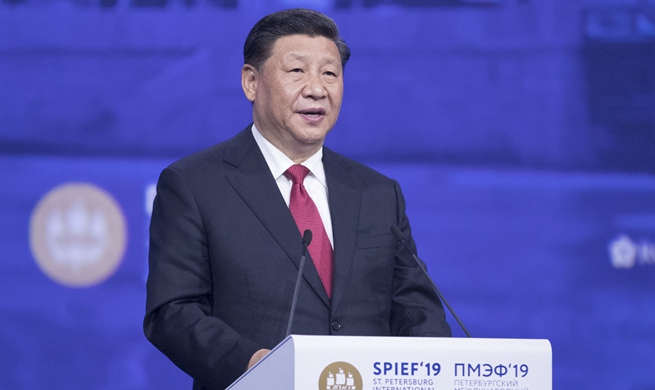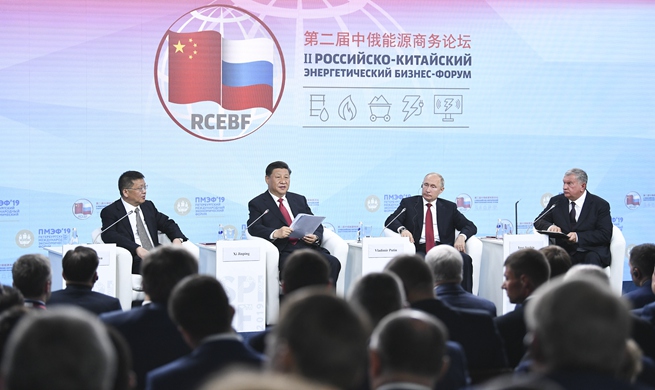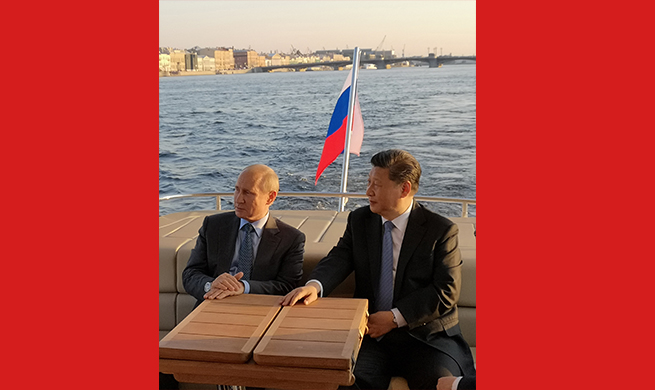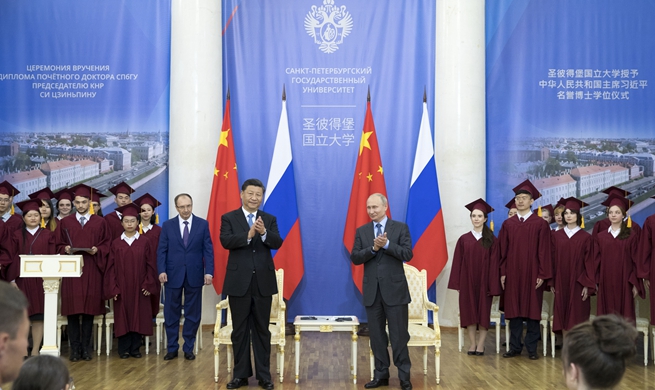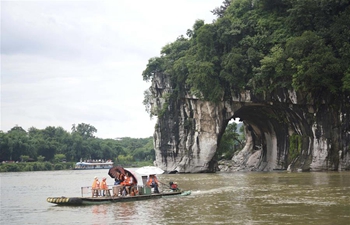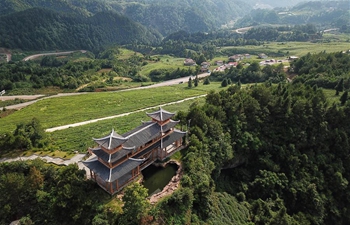WINDHOEK, June 9 (Xinhua) -- Celia Kadhikwa, 43-year-old, is excited about casting her vote in the upcoming Namibia presidential elections in Namibia.
For the first time, the third time voter has a clear idea of how elections work and what it means to cast a vote for a particular candidate.
Kadhikwa is one of the thousands of Namibian women across the country who are receiving training in gender equality and female representation in politics to better prepare them for the upcoming elections.
"Previously, going to vote for me was just something I did because everyone else was doing it. I now have a different view about voting and politics that I actually cannot wait to cast my vote," Kadhikwa said.
Namibia is providing the training in an effort to achieve gender equality by 2030 in line with Sustainable Development Goal number 5.
"I might even consider running in regional council elections as an independent candidate with all this knowledge I have now," Kadhikwa said jokingly.
According to Namibia's National Gender Policy Document, Namibia did not perform well as a country in terms of women's representation in political leadership.
Although the country has made great strides in including women in politics and in leadership positions, research shows that in the country's National Council, the representation of women is still lower than that of men.
Currently, women in Namibia hold 14 percent of regional council seats and 22 percent in cabinet.
Executive Director of the community development group Women's Action for Development, that is spearheading the training, Salatiel Shinedima, said the training is meant to equip women with necessary skills and knowledge to take part in politics whether as a voter or candidate.
"If the electorate are not sensitized about the importance of having women fairly represented in the National Council, we are depriving our decision making bodies of the views and concerns and experiences of women," he said.
"The project is aimed at enhancing the capacity of women, those who are currently in politics but not in leadership position and those in leadership positions but do not have the capacity to take up those positions," he said.
The training not only educates women on how to do research and table motions in parliament but also helps build their confidence.
"That is when we say that to compliment this entire process we need to include public awareness on the importance of voting for women in political leadership," he said.
According to United Nations in Namibia, urgent action to eliminate the main root causes of discrimination that restrict women's rights in private and public scopes is still required in the country, especially in rural areas.
Recently, SADC Executive Secretary Stergomena Tax, said women representation in parliamentarians of most countries of the Southern African Development Community (SADC) has decreased or remained constant.
She said gender mainstreaming and creating opportunities for women in positions of influence in SADC was vital to foster development in member states.
She added that countries in SADC had not yet met the 50 percent representation by women in their parliaments.
